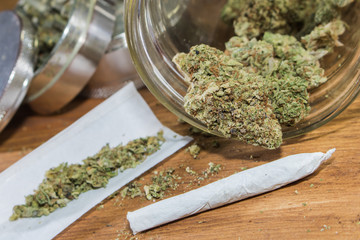Marijuana, derived from the Cannabis plant, is one of the most widely used substances in the world. It contains active compounds known as cannabinoids, the two most famous being THC (tetrahydrocannabinol) and CBD (cannabidiol). While THC is responsible for the plant’s psychoactive effects, CBD has been praised for its potential therapeutic benefits without inducing a high. Marijuana has both recreational and medicinal uses, and its legality is a topic of ongoing debate in many parts of the world. Understanding its effects, benefits, and risks is essential for informed decision-making.
The History and Evolution of Marijuana Use
Marijuana has a long history, dating back thousands of years. In ancient civilizations, cannabis was used for medicinal and recreational purposes, as well as for making textiles and ropes. Its use was widespread in regions like China, Egypt, and India. However, in the 20th century, marijuana became criminalized in many countries due to the increasing association with drug use and the war on drugs. In recent decades, there has been a shift toward legalization for both medicinal and recreational purposes as society’s views on marijuana continue to evolve.
The Medicinal Benefits of Marijuana
The medical use of marijuana has been widely studied, particularly for its effectiveness in managing chronic pain and a variety of conditions. CBD, a non-psychoactive compound found in marijuana, has shown promise in alleviating symptoms related to conditions such as epilepsy, anxiety, and chronic pain. It is also used to reduce inflammation and manage conditions like arthritis. THC, the psychoactive component, is often used for pain relief, nausea reduction (especially for chemotherapy patients), and stimulating appetite in individuals with conditions like HIV/AIDS. The medicinal properties of marijuana have led to its increasing approval by health professionals worldwide.
The Effects of Marijuana on Mental Health
Marijuana has a complex relationship with mental health, offering both positive and negative effects depending on usage and individual factors. On the one hand, marijuana has been found to provide short-term relief for anxiety and depression for some individuals. CBD has been particularly noted for its calming effects without the high associated with THC. However, excessive marijuana use, especially with high THC content, can lead to adverse effects, such as anxiety, paranoia, and cognitive impairment, particularly in younger users. Long-term use may also exacerbate mental health disorders, including psychosis and depression in predisposed individuals.
The Legalization of Marijuana: Progress and Challenges
The legalization of marijuana has gained momentum in recent years, with many countries and U.S. states decriminalizing or legalizing its medical or recreational use. Proponents of legalization argue that it can reduce criminal justice costs, generate tax revenue, and provide a safer alternative to other substances like alcohol and tobacco. However, challenges remain, such as concerns about public health, safety, and the potential for increased addiction rates. Despite these concerns, the growing body of research supporting marijuana’s benefits has led to significant legislative changes in regions where cannabis use has been legalized.
Conclusion
As marijuana becomes more widely accepted, it’s important for users to approach it responsibly. Knowing the legal status of marijuana in your area, understanding the dosage, and being aware of its effects on your health are crucial for safe consumption. The future of marijuana is promising, with ongoing research into its medical uses, safer consumption methods, and potential benefits for various conditions. As the stigma surrounding marijuana continues to decrease, it is likely that its role in healthcare, wellness, and recreation will continue to expand in the years to come.
